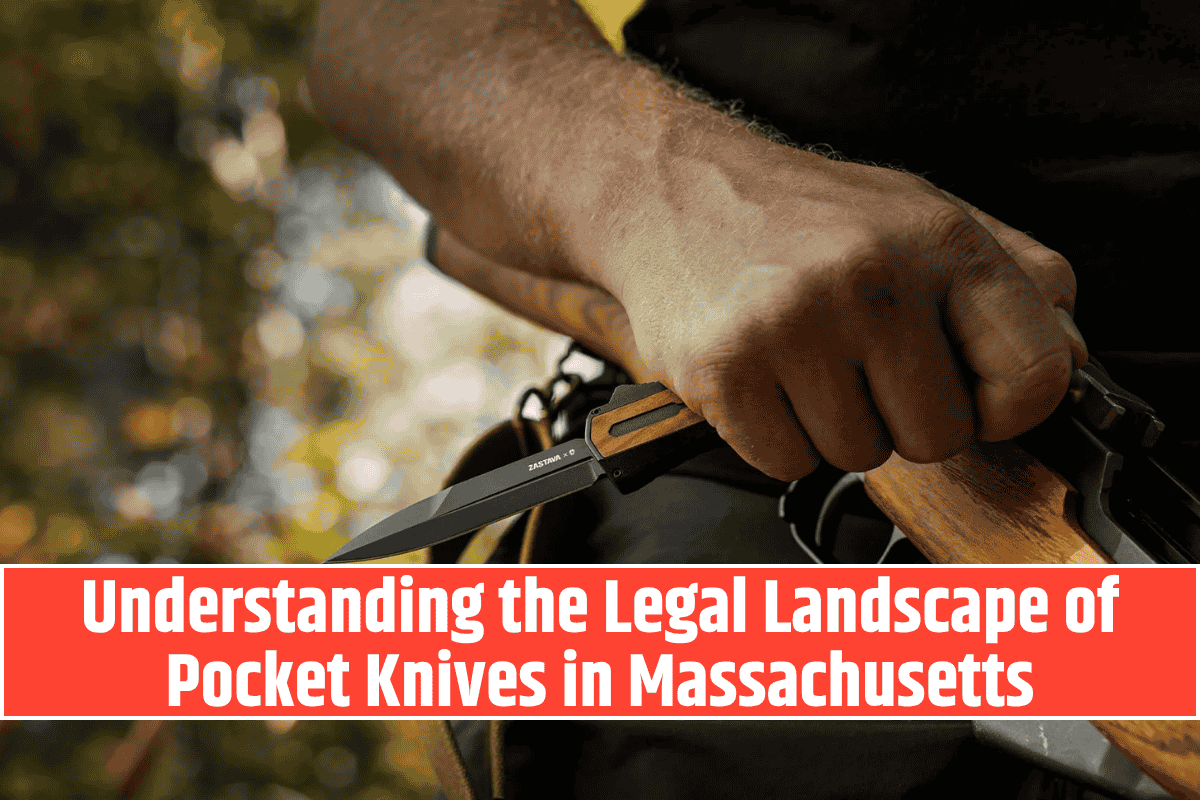Whether you carry a knife for work, outdoor activities, or just personal safety, it’s important to know the laws where you live. In Massachusetts, knife laws are strict and specific. Not knowing the rules can easily lead to serious trouble—even if you didn’t mean to break the law.
This guide explains, in plain and simple language, what kinds of knives are legal, where you can carry them, and what happens if you don’t follow the rules.
What Types of Knives Are Legal in Massachusetts?
Massachusetts does allow the use of some knives, as long as they are used responsibly and not intended as weapons.
The following types of knives are generally legal:
Pocket knives or folding knives with blades under 2.5 inches
Kitchen knives or utility knives used in the home
Hunting and sporting knives, as long as they’re used legally and safely
As long as you’re not using the knife in a threatening or illegal way, these knives are typically allowed.
What Knives Are Illegal in Massachusetts?
There are certain knives you’re not allowed to own or carry in Massachusetts, even if you don’t plan to use them.
Here are illegal knives in the state:
Switchblades or automatic knives that pop open by button or spring
Ballistic knives that shoot the blade out
Double-edged daggers, dirks, and stilettos meant for stabbing
Any knife carried with the intent to harm or threaten others
Having these kinds of knives can lead to serious legal consequences, even if you didn’t know they were illegal.
Carrying Laws: Open vs. Concealed
Open Carry
You can openly carry legal knives in Massachusetts, like a small folding knife or utility blade, but there’s a catch. If you carry a knife in a way that seems threatening to others—like waving it around or carrying a large blade on your belt—you could be charged with “disturbing the peace” or worse.
So, while open carry is not directly banned, how you carry your knife matters a lot.
Concealed Carry
Massachusetts is much stricter when it comes to concealed carry. Hiding a knife on your body, especially if it’s considered a “dangerous weapon,” is generally illegal unless you have a valid reason—like you’re at work and need it for your job.
If police believe you are carrying a knife to hurt someone or commit a crime, even a small knife can lead to arrest.
Places Where Knives Are Not Allowed
There are some strictly prohibited locations where carrying knives is not allowed, even if the knife is legal in general:
Public and private schools
Government buildings like city halls or courthouses
Airports and other secure travel hubs
Public transportation facilities like train stations or subways
Breaking the rules in these places can lead to arrest, heavy fines, or even jail time.
Exceptions for Law Enforcement and Military Personnel
Police officers, military members, and certain other officials are usually exempt from many of the knife restrictions. They can carry knives that regular people can’t, but only as part of their job duties.
If you’re not in law enforcement or the military, don’t assume the same rules apply to you.
What Happens If You Break the Law?
Breaking knife laws in Massachusetts can lead to some serious penalties:
You could be charged with a crime, which may be a misdemeanor or felony
You may have to pay hefty fines
You could face jail or prison time, especially for serious or repeated violations
You may end up with a criminal record, which can affect your job, housing, and more
Even if you carry a knife by mistake or didn’t know it was illegal, you could still face charges.
Massachusetts takes knife laws seriously to keep people safe. That’s why it’s so important to know the rules before carrying any knife—even something as small as a pocket knife. If you’re unsure about a specific knife, talk to a lawyer or local police department. Being cautious can help you avoid trouble.
Stick to legal knives, carry them responsibly, and never bring them to restricted places like schools or government buildings. When used properly, a knife is a helpful tool. When used wrongly, it can lead to real problems.












